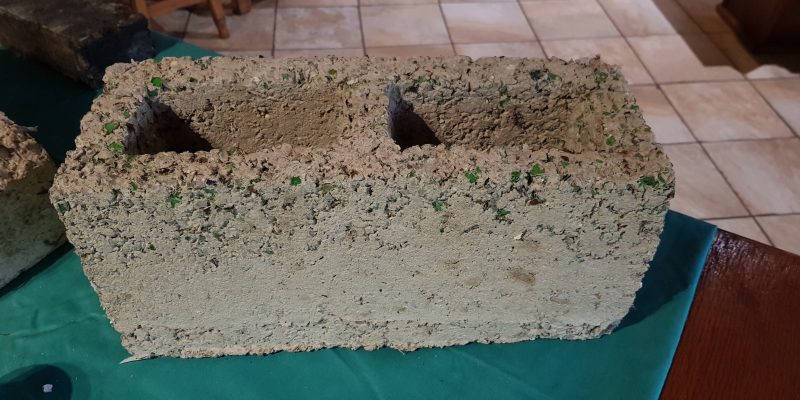Containerised systems for converting plastic waste into construction material will be deployed in several companies in South Africa. It is the result of an alliance between Evalution Flooring, a flooring supplier, and Recycle 4 Africa Waste Management (R4AWM).
Evalution Flooring has joined forces with Recycle 4 Africa Waste Management (R4AWM), a company specialising in waste recovery, to offer decentralised container systems capable of transforming plastic waste into building materials such as bricks or paving stones.
The two companies have already installed a first plastic waste recovery unit for the Grandwest Hotel in Cape Town. Called the “Enviro Brick”, the waste recovery system consists of a compartment in which plastic waste is disposed of. The plastic waste is powdered before being heated. After the used plastic is melted, “a binder is added and the mixture is poured into moulds, which are then cast into blocks or paving stones. Anyone who has received training from R4AWM in block making can use the machine,” explains Evalution Flooring.
The use of recycled plastic building materials
According to Evalution Flooring, the container also eliminates bacteria, and thus makes it possible to process non-recyclable or even contaminated waste. “The eco-bricks can then be used to build solid and durable single-storey structures, which is not only more energy efficient, but also more cost-effective, as the production process is cheaper,” says the South African company.
Such an initiative to use recycled plastic in construction is not a first in South Africa. In September 2019, the South African company Shisalanga Construction started work on a 1.7 km stretch of road in KwaZulu-Natal province using recycled plastic material. For the construction of that section of road in South Africa, recycled plastic waste is used as a binder in the asphalt, thereby replacing bitumen.
However, questions are likely to be raised about the long-term resistance of the materials, but also about the benefits of living in plastic constructions, which would then replace local materials… The short-term advantage of this type of solution probably cannot hide the need for a longer-term response to the proliferation of plastic waste in Africa.
Jean Marie Takouleu






